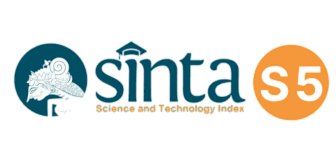The development of Indonesian mass media: An analysis of political power and its influence on democracy
Perkembangan media massa Indonesia: Analisis kekuatan politik dan pengaruhnya terhadap demokrasi
Downloads
This study aims to analyze the development of mass media in Indonesia after the 1998 Reform, focusing on its relationship with political power and its impact on democracy. Using a descriptive qualitative method, the study analyzes documents, literature, and relevant news archives to understand the dynamics of media in the context of politics and democracy. Data was collected through literature review and content analysis of mass media that have evolved since the Reform era. The results show that mass media plays a crucial role in shaping public opinion, influencing political policies, and strengthening democracy in Indonesia. Since the Reform era, media has undergone significant transformation, becoming freer and more diverse, as well as serving as a channel for social control over power. However, several challenges remain, such as dependence on political interests and media owners, which affect the independence of news reporting. Additionally, rapid digital disruption and the spread of hoaxes further degrade the quality of information received by the public, lowering trust in the media. Other findings indicate that, despite efforts to maintain its role in democracy, professionalism and journalistic ethics are often neglected in an attempt to meet market demands and political interests. This study concludes that mass media must continue to maintain independence, enhance professionalism, and adhere to journalistic ethics to strengthen democracy in Indonesia, while addressing the challenges in the increasingly complex digital and political era.
Copyright (c) 2025 Indah Sakina, Doni Hendrik

This work is licensed under a Creative Commons Attribution-NonCommercial-ShareAlike 4.0 International License.
- Copyright of this journal is possession of Editorial Board and Journal Manager, by the knowledge of the author, while the moral right of the publication belongs to the author.
- The formal legal aspect of journal publication accessibility refers to Creative Commons Atribusi-Non Commercial-Share Alike (CC BY-NC-SA), implies that publication can be used for non-commercial purposes in its original form (cannot be modified).
- Every publication (printed/electronic) are open access for educational purposes, research, and library. Other than the aims mentioned above, the editorial board is not responsible for copyright violation.












